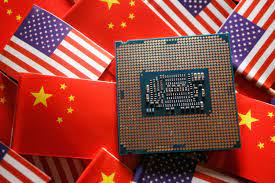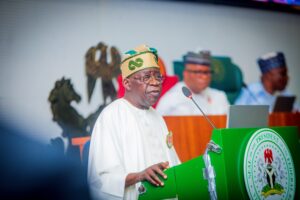By Frank Eleanya on January 10, 2023
The use of the majority of silica sand deposits in construction and the gaps in human capital development means Nigeria will be totally missing in the chip war between the United States and China in 2023. But should the most populous country in Africa with many developmental challenges change track, it could be one of the major beneficiaries of the large-sized investment going to the semiconductor market.
The global semiconductor market hit a valuation of $555.9 billion in 2021 and is projected to reach $1,033.5 billion by 2031, with a compound annual growth rate of 6.21 percent from 2022 to 2031. Chip is the foundational ingredient in today’s modern world. It has to be present in nearly all technology devices for them to function efficiently.
It powers mobile devices from 5G-enabled smartphones to feature phones, the transistor radio set used by millions in Northern Nigeria, the television set in many homes, and several technology devices used by people today. While no one country can control the entire manufacturing process of chips because of the complexity and the outsized value chain, countries like the US focus on gaining as much share as they can to avoid being overly dependent on others.
The US views its participation in chip manufacturing as critical; it considers it a matter of national security. Chips are increasingly being used to produce advanced weapons. For example, in 2022, China launched a hypersonic glide vehicle built with advanced chips, in an exercise near Taiwan, and Russia used hypersonics for the first time in warfare in Ukraine.
A major concern of the US is that China controls 80 percent of the world’s refining capacity for rare-earth materials, which are essential in making both military products like parts for fighter jets and everyday consumer devices components like batteries and screens. Restricting exports could provide China with some leverage.
The position of Taiwan is also a major issue for China and the US. Taiwanese companies dominate the global semiconductor output. Taiwan Semiconductor Manufacturing Company (TSMC) is responsible for around 50 percent of global semiconductor chip production. By contrast, no single country accounts for more than 18.5 percent of global oil production.
China continues to maintain that Taiwan is part of its sovereign territory. But Taiwan sees itself as separate from the Chinese mainland, with its own constitution and democratically-elected leaders. The US supports an independent Taiwan, therefore sees it as an ally to the consternation of China which continues to threaten to reunify Taiwan.
In a move to curtail the growing power of China, the US, in recent months, has instituted the widest restrictions ever on what chips can be sold to China and who can work for Chinese companies. At the same time, it has targeted the supply side of the chip industry, introducing generous federal subsidies to attract manufacturing back to the US.




